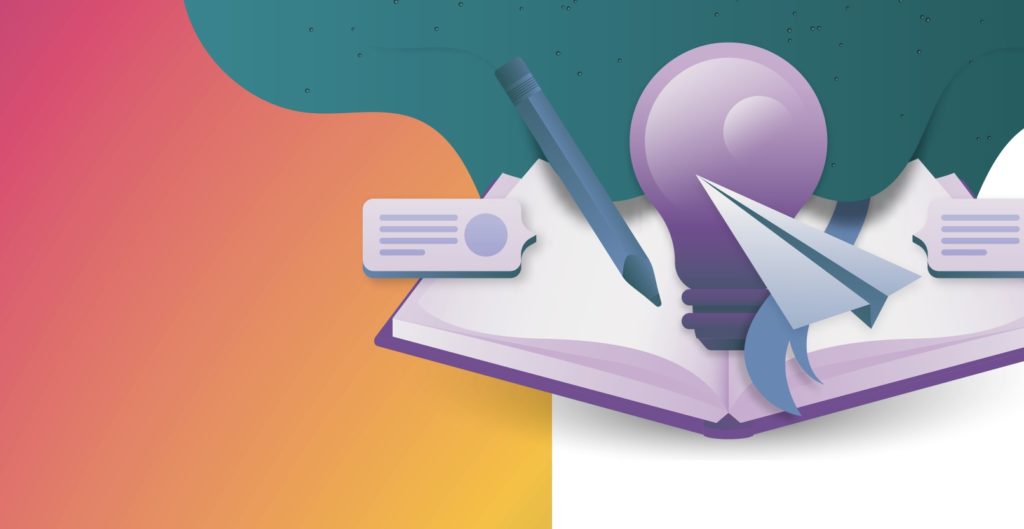
Partager :
This article is part of
Vol. 1, issue 1 (Fall 2021)
of EngagED Learning magazine.
By Kate Whalen
Instructor, Sustainable future program, McMaster University
COVID-19 catapulted our society on a mass scale into the online environment, and often we weren’t prepared. Many of us were forced to equip ourselves with new skills and tackle new challenges.
For instance, beyond changing how we worked, some of us also had to cope with the prospect or reality of being Zoom bombed or scammed online.
Beginning something new and confronting new circumstances requires us to bear the discomfort of being a beginner. It necessitates experiential learning—any learning that happens when we intentionally consider our experience to be a source for a potential lesson.
Research insights into how students learn through experience can benefit anyone who is facing the discomfort of new learning.
Turning experience into learning requires reflection. Reflection is a process of thinking critically to create meaning from our experiences.
As an example, consider the experience of your first Zoom call, whether this was during the pandemic or before. Think about how you felt before you clicked the link, the concerns you had when your internet froze or your kids appeared, and how you adapted. Maybe you increased your internet bandwidth, introduced your colleagues to your kids and found the mute button. That’s reflection, and the benefit of considering what we can learn from our experience and how we can apply what we learn going forward.
When I developed and tested a tool to help guide, assess and evaluate how students learn through experience, I found that learners describe reflection as “a positive challenge.” Other research has found learners experienced it as rewarding but challenging.
Being a beginner is most difficult and uncomfortable when what a person needs to learn seems far beyond their reach, and they don’t have the experiential scaffolding to support their learning. This can make learning ineffective. However, if a person perceives a challenge as hard but within reach, they may be motivated to take the steps needed to get there.
In construction, scaffolding helps builders reach new heights. In education, the term “scaffolding” refers to supports that help people progressively gain independence and mastery in what they are learning. Reflection, while a positive challenge, can help us learn and succeed.
While studying the important role reflection plays in helping us learn through our experiences, I found that reflecting on our experiences seems to make information more available for use. In the words of one of my student research participants, “reflection didn’t make me learn more, it just made me realize what I had learned.”
There is value in explicitly knowing what you know – you can use what you know to put your new challenges within reach.
Used as a tool for leveraging our experiences as scaffolding for learning, reflection can help us take full advantage of novel situations. It could propel us into conscious competence: this is when our competence is grounded in knowing that we can easily troubleshoot, find useful information and learn effectively.
Whether your current work has evolved during the pandemic or is new altogether, here’s a list of things that can help you effectively use reflection to help learn something new:
• Get clear on what you know and what you need to know. Use what you know and leverage the skills, abilities and resources that you have to help you tackle the challenges ahead.
• Consider your past experiences. How can they help you navigate this new situation? What lessons can you apply right away?
• Tap into your emotions. Identify your feelings and what biases, values or intentions are underneath. Without agonizing over it, consider how these feelings may be helping or hindering you.
• Take a step back. Try to see the situation from a distance or as if it were someone else’s. What else can you see and learn from this perspective? From this vantage, how could the outcome be improved?
• Make a plan. Answer the following questions, in order, to set goals and plan for success: What’s the next action to move you forward? How will you feel once it’s done? What outcome do you expect? What could derail your plan and what will you do to ensure it doesn’t stop you?
Whether it’s transitioning to a new job or industry, helping our children with their online homework or learning how to screen-share during video conferences, we must treat our new experiences as welcome opportunities to learn, and embrace the discomfort of being beginners.
—
The original version of this article was published in The Conversation Canada on May 21th, 2021. https://theconversation.com/beginners- 101-how-to-confront-and-overcome-the-discomfort-of-starting- something-new-157110
Pour vous offrir une expérience optimale, nous utilisons certaines technologies — dont les témoins (cookies) — afin de stocker et/ou d’accéder à des informations liées à votre utilisation du site. Votre consentement nous aide à mieux comprendre votre parcours de navigation et à améliorer nos contenus et services. Le refus ou le retrait de votre consentement pourrait toutefois limiter le fonctionnement de certaines fonctionnalités.